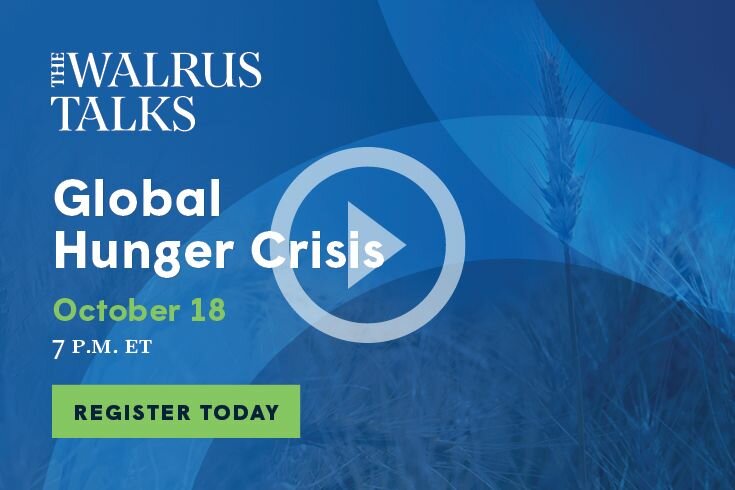Global hunger declined steadily for 50 years. This changed around 2015, and today it affects 1 out of 10 people. How do we make sure no one goes hungry?
Around the world, more people are facing food insecurity. According to a United Nations report, this is due to rising prices, supply chain issues, war, and frequent climate disasters. Irrespective of where they live, people are eating less, and last year between 702 million and 828 million went hungry. That’s 10 percent of the global population.
We need to act now to turn back the clock on this rampant problem. At The Walrus Talks Global Hunger Crisis, experts will come together to discuss why this crisis has happened, what it looks like in Canada and abroad, and what changes we can make today to improve efforts to end hunger and malnutrition.
Come and join us in-person or online to understand how we can make an impact on this global issue.

Featuring seven-minute talks from:
- Rachel Blais, Executive Director, Qajuqturvik Community Food Centre
- Sophie Gebreyes, Country Director, Ethiopia, World Lutheran Federation
- Marcel Groleau, President, UPA Développement international; Interim President, d’AgriCord; President, Coalition Nourrir l’humanité durablement
- Neil Hetherington, Chief Executive Officer, Daily Bread Food Bank
- Jean-Charles Le Vallée, Country Representative – Canada, Inter-American Institute for Cooperation on Agriculture
- Kyung-nan Park, Deputy Regional Director, Latin America and the Caribbean, World Food Programme
- Melana Roberts, Chair, Food Secure Canada
The Walrus Talks Global Hunger Crisis is presented by Cooperation Canada as part of the International Cooperation Futures Festival program.
Supported by











